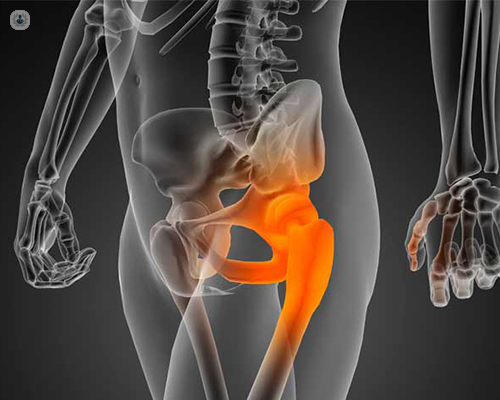Getting your life back after a hip replacement: A journey to mobility and wellness
Written in association with:Hip replacement surgery can be a life-changing procedure for individuals suffering from severe hip pain and limited mobility due to arthritis, fractures, or other hip-related issues. The journey to recovery and regaining your life after a hip replacement involves a combination of medical care, physical therapy, and lifestyle adjustments. In this article below, revered consultant orthopaedic surgeon, Mr Daniel R. Cohen tells us how you can get your life back on track post-surgery.

How is hip replacement surgery performed?
Hip replacement surgery involves removing the damaged parts of the hip joint and replacing them with artificial components. This surgery aims to relieve pain, restore function, and improve quality of life. The initial recovery phase typically involves a hospital stay overnight, during which you’ll start physical therapy to learn basic movements like getting in and out of bed and walking with assistance.
How important is physiotherapy in the recovery period after a hip replacement?
Physical therapy is crucial for a successful recovery. In the weeks following surgery, you’ll work with a physical therapist to strengthen the muscles around your new hip, improve flexibility, and gradually increase your activity level. Exercises might include leg lifts, gentle stretching, and walking. Adhering to your physical therapy regimen is essential for regaining full function and avoiding complications.
How should I adapt my home environment after hip replacement surgery?
The hospital will recommend some modifications to your home can facilitate a smoother recovery. Consider using a raised toilet seat, and ensuring that frequently used items are within easy reach to avoid unnecessary bending or stretching. These changes can help you navigate your home more safely and comfortably.
When can I get back to having an active life?
As you progress in your recovery, you’ll gradually resume daily activities. It’s important to follow your surgeon’s and physical therapist’s advice on when to return to specific tasks, such as driving, working, or engaging in hobbies. Start with low-impact activities like walking, swimming, or cycling, which are gentle on the new hip joint.
What can be expected after surgery?
Pain and swelling are common after hip replacement surgery. Managing these symptoms with prescribed medications, ice packs, and proper rest is essential. Elevating your leg and using compression stockings can also help reduce swelling.
A hip replacement can last many years, but taking care of your new joint is crucial. Maintain a healthy weight to reduce stress on the hip, avoid high-impact activities that could damage the joint, and stay active with regular, low-impact exercise. Regular follow-up visits with your surgeon will ensure that your hip replacement is functioning well and address any concerns promptly.
Recovering from hip replacement surgery isn’t just about physical healing, but it is also important to address the emotional and mental aspects of recovery. Staying positive, setting realistic goals, and seeking support from family, friends, or support groups can make a significant difference in your overall well-being.
To consult with Mr Daniel R. Cohen today, visit his Top Doctors profile.


